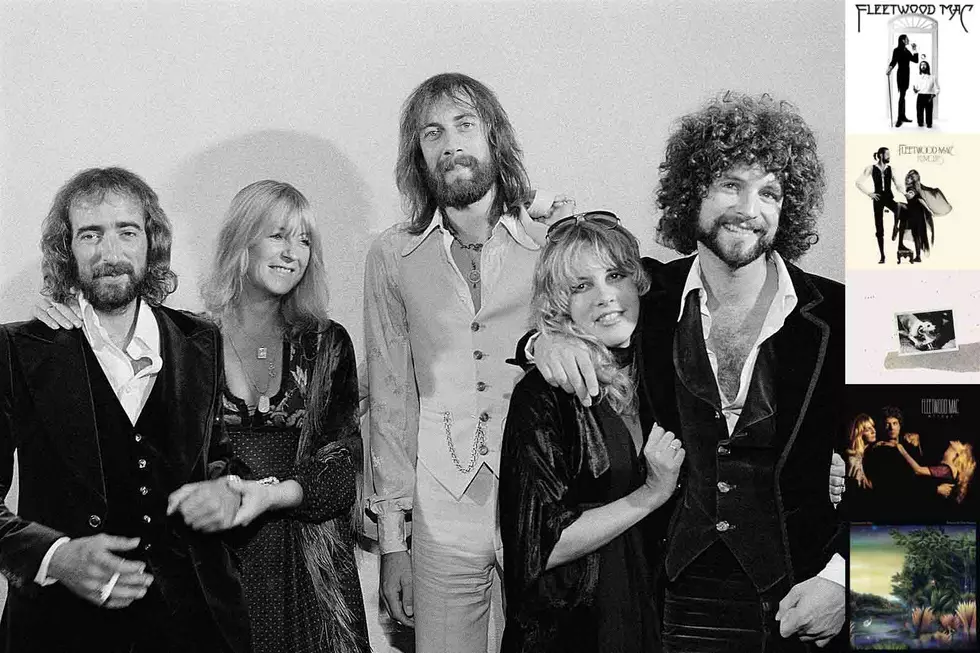
How Fleetwood Mac’s ‘Bare Trees’ Showcased Departing Danny Kirwan
Bare Trees was Fleetwood Mac's most consistent album to date, and remains today their earliest platinum release. Much of that attention arrived years later, however, after a retooled lineup hurtled the band to the top of the pop charts.
When Bare Trees arrived in March 1972, Fleetwood Mac were still searching for that now-familiar identity, with a lineup that included three future Rumours-era members – Mick Fleetwood, John McVie and Christine McVie – along with the sharply underrated Bob Welch and the soon-to-depart Danny Kirwan.
Kirwan, who'd joined Fleetwood Mac as an 18-year-old in 1968, was the link back to their galloping blues days with the now-departed Peter Green – but a penchant for more thoughtful songwriting eventually meant that he played a key role in their evolution toward stardom, too. "Danny was a quantum leap ahead of us creatively," Fleetwood later told Music Aficionado. "He was a hugely important part of the band."
Unfortunately, he also had gnawing personal issues which eventually led to an issue with alcohol. "Looking back, Danny was not suited to this business," Fleetwood added. "It was too much pressure. He and Peter were both highly sensitive people, not suited to take the blows."
Kirwan was summarily fired on the tour in support of Bare Trees, and later fell on very hard times. But not before quietly framing this entire project with five songs, to go with two apiece from the late Welch and Christine McVie.
"Danny wasn't a very lighthearted person, to say the least," Welch said in a 2003 Q&A for Penguin. "He probably shouldn't have been drinking as much as he did, even at his young age. ... He was always very intense about his work, as I was, but he didn't seem to ever be able to distance himself from it – and laugh about it. Danny was the definition of 'deadly serious.'"
Listen to Fleetwood Mac Perform 'Dust'
You heard it in the music. Kirwan's weary, compact "Dust" counts – with Welch's "Hypnotized" from Mystery to Me – as one of the top moments in this transitional period. "Child of Mine" begins things with a tough declaration of intent, before Kirwan leads the group though "Sunny Side of Heaven," a introspective, musically rich instrumental. The title track boasts a muscled groove, while the wah-driven, rhythmically involving "Danny's Chant" sets an early template for "Tusk." "Trinity," another Kirwan song from this prolific final period, later appeared on the 1992 box set 25 Years: The Chain.
That said, Bare Trees was always most famous for the contributions of others. Elsewhere, both Welch ("Sentimental Lady") and McVie ("Spare Me a Little of Your Love") add signature songs to the mix. Fleetwood Mac made "Spare Me" a staple of their '70s-era set lists, while "Sentimental Lady" was later reworked into a solo Welch hit in 1977 – with notable assists from Fleetwood, Christine McVie and Lindsey Buckingham. Holding it all together was a polished, warm new production style that came to define their most famous period.
"Bare Trees is the beginning of the band showing a body of work with all the proper connections made," Fleetwood told Music Aficionado. "It's a well-rounded album. Like Lindsey, Danny had the chops with layering techniques, and the ability to know what's right and wrong in the studio."
Yet, Bare Trees initially went nowhere, peaking at a paltry No. 70. The arrival of Buckingham and Stevie Nicks before 1975's self-titled smash changed Fleetwood Mac's fortunes, however, and fans belatedly returned to lost gems like this one. In 1976, Bare Trees went gold; by 1988, it had sold more than a million copies.
Fleetwood Mac Lineup Changes: A Complete Guide
See Fleetwood Mac Among Rock’s Most Underrated Albums
More From Ultimate Classic Rock









